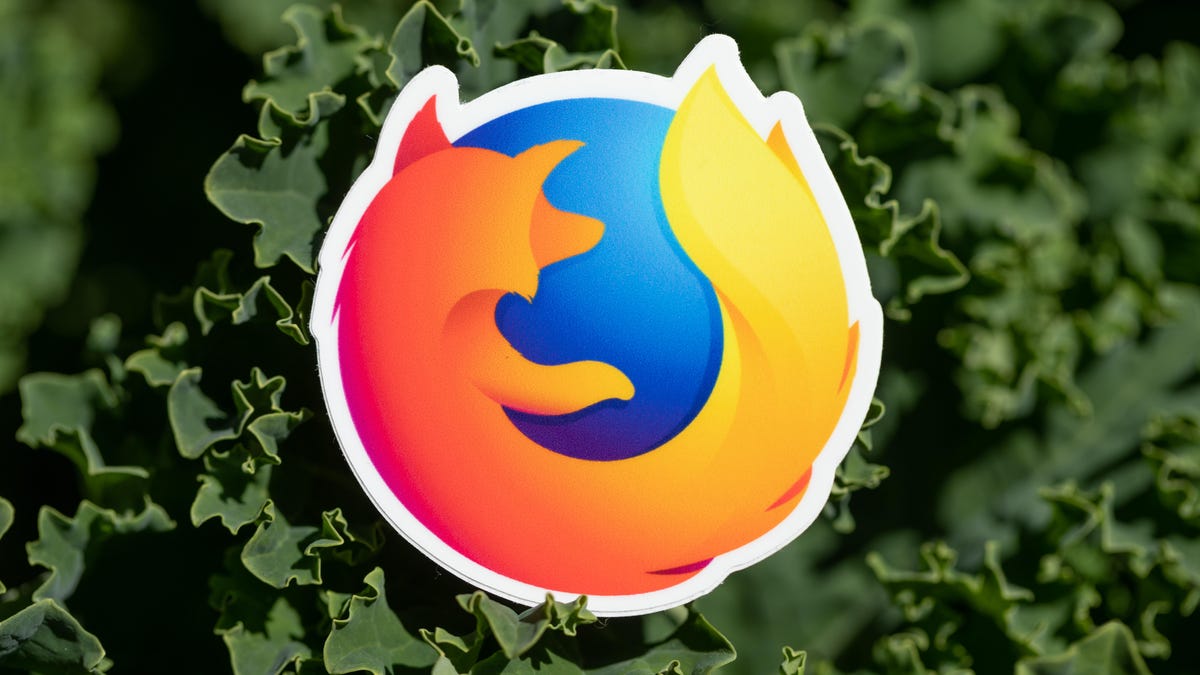Firefox tweaks ad tracker blocking to avoid breaking websites
Also in Firefox 63: better performance, Windows dark mode adaptations and Siri shortcuts.

A Mozilla Firefox sticker
With a new Firefox tool called enhanced tracking protection, Mozilla is refining its approach to keeping websites and advertisers from following your online activity.
The feature arrives in the new Firefox 63, released Tuesday, though it's disabled by default for now. It's designed to cause fewer problems with websites than the tracking protection that debuted as an option in Firefox 57 last November, which Mozilla found could break websites and block advertisements. Millions of us run ad blockers, but the intent of the tracking protection tool is something else entirely -- blocking advertisers from figuring out who we are as we skip from site to site.
"The feature more surgically targets the problem of cross-site tracking without the breakage and wide-scale ad blocking which occurred with our initial Tracking Protection implementation," said Peter Dolanjski, a Firefox product manager, in a blog post Tuesday.
The change illustrates the web's difficult balancing acts. Nobody wants invasive advertising technology, but ads are generally what enable free web services like search. And browser makers have to decide how much to represent the preferences of those of use who use browsers or the sometimes different interests of those who build the web.
The balance has been shifting, though. An increasing fraction of Firefox users have enabled tracking protection, and Apple's Safari has curtailed tracking significantly while Brave Software's Brave has attempted to block it altogether. Firefox is building the tracking protection feature in response to "shifting market conditions and an increase in user demand for more privacy protections," the nonprofit organization said.
Websites can track you by placing text files called cookies on your computer or phone. Cookies enable plenty of handy things -- for example, remembering that French is your preferred language or that you put a new charging cable in your e-commerce shopping cart. But cookies can also record your identity and help companies log where you've been.
New tracking protection preferences
In Firefox 63 preferences, you'll now see a section for handling third-party cookies. If you enable blocking, there are two options: blocking trackers and blocking all third-party cookies. Mozilla recommends the new first option and hopes to enable it by default in early 2019.
Firefox is fine-tuning its tracking protection, offering separate controls for cookies and for tracking software and recommending cookie blocking it says won't break websites from properly loading.
Tracking protection can still cause problems. It can be disabled for a particular site by clicking the shield icon that appears on the left side of Firefox's address bar.
Mozilla initially announced another phase of its Firefox tracking crackdown, blocking trackers that slow websites down. However, it had to discard its initial approach. "As a result, we are exploring some alternative options targeted at the same outcome -- much faster page loads," Mozilla said.
Firefox 63 also brings several other features:
- On Windows 10, Firefox's themed look now follows the operating system's setting for dark and light modes.
- Windows versions should run faster because of a new system to build Firefox, and MacOS versions should switch tabs more quickly and respond faster to things like scrolling actions and mouse clicks.
- A new search shortcuts feature pins Google and
Amazon
to the list of top sites that appears when you open a new tab, and clicking or tapping those icons puts your cursor into the address bar to enter search terms for that website. The feature is offered only in the United States.
- On
iOS
, Firefox supports
Siri
shortcuts to open a new tab with a voice command, with other options due in the coming months.
- New PC users switching tabs with the Ctrl-Tab or Cmd-Tab keyboard shortcuts now will see their most recently used tabs first, presented with thumbnail images. Existing users will continue to see the existing behavior, which cycles to the right on the tab strip, an option that can be enabled in preferences.
- Website developers who want to use the 3D graphics technology called WebGL but who don't need maximum horsepower can instruct Macs not to fire up their more power-hungry dedicated graphics chip, relying instead on the main Intel processor to extend battery life.
Mozilla's Firefox offers VPN service: It promises to boost privacy for $10 a month.
Google brings 'www' back to Chrome: But not for long.

